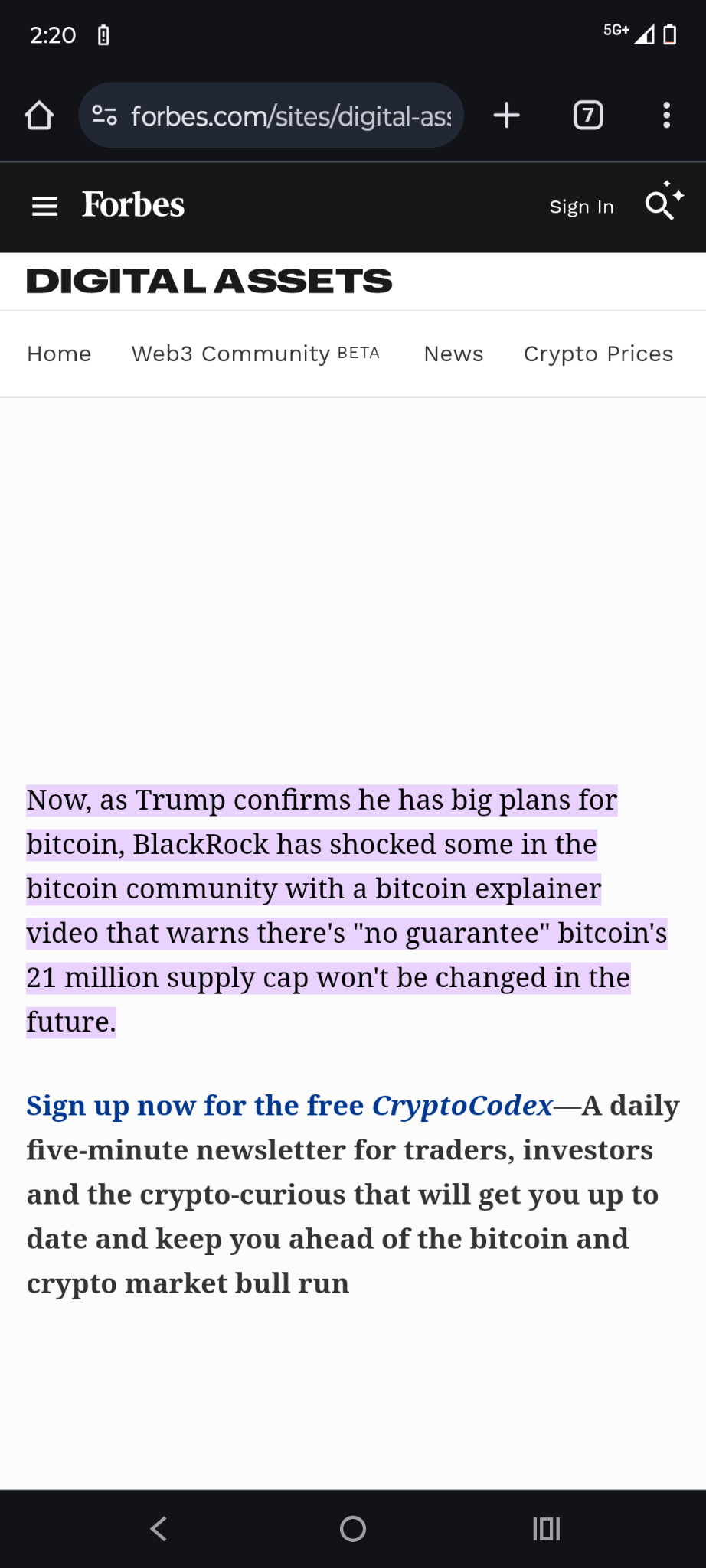EZ_money
commented on a stock · Yesterday 05:31
$Bitcoin (BTC.CC)$ I say let Saylor have his beloved coin......
$Bitcoin (BTC.CC)$ I say let Saylor have his beloved coin... Blackrock will just add more coins anyways. it's code people. anyone with decent enough skills can change that code. there's always designer access backdoors to get in and change it no programmer writes a program that he can't change 🤣🤣🤣 this is why techs don't value crypto as assets. not forbidden knowledge 👇🥴
Disclaimer: Community is offered by Moomoo Technologies Inc. and is for educational purposes only.
Read more 1
1
EZ_money OP : anyone saying different doesn't know what they are talking about
EZ_money OP : there's no set cap on BTC if Blackrock wants to they will double it
EZ_money OP : you don't rule the world.... Blackrock, Vanguard, Sate street capital, central banks rule the world, every government every nation. media is 99% lies with a tad bit of truth
EZ_money OP : oops did I say coin....I meant con
Nisdey EZ_money OP : I dunno if you're being sarcastic or not. But the upper limit of 21 Million BTC, wouldn't just need a code change, but also a hard fork of the whole network. Meaning that every participating node would need to "upgrade" their BTC miners, and they would need to hope that people don't refuse to do this, and end up continuing the old blockchain. So you'd end up with a situation much like Bitcoin Cash, where your new one would be practically worthless.
EZ_money OP Nisdey : they will have anyway for quantum computers so eventually it's coming
Nisdey : AFAIK, the BTC mining process isn't significantly accelerated by quantum computing.
The way it works requires the miner to assemble a block, along with some other junk data such that it hashes to a number that when converted to a a number is extremely small (below the block reward threshold). This means that there is an extremely large finite field of valid block content, which needs to be permuted and padded with the right junk to yield a low hash number.
Even if someone was able to build a quantum computer with enough QBits to store an entire block, the act of copying and permuting the candidate transactions that go into this block can't be accelerated by quantum superposition, as it's not just testing static data against a large keyspace (like traditional encryption) nor does it's security depend on the computational intractability of some fundamental math operation, like large integer factorisation or discrete logarithms.